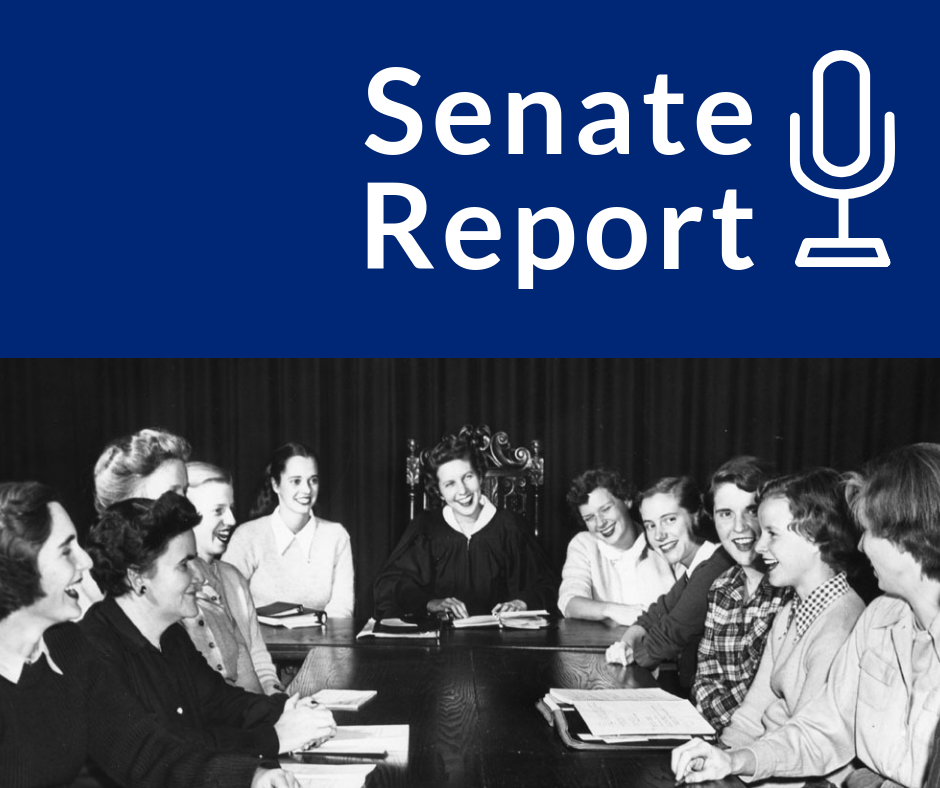Senators report results of OneCard expansion survey
A working group of senators and house council members presented on the results of a survey sent out to the student body last semester at Senate this past Monday. The survey consisted of 11 questions about students priorities if the functionality of the OneCard was to be expanded. Currently, Wellesley OneCards allow students access to buildings, serve as ID, hold Flex Points and can hold money if a student loads money onto the card online or at the Emporium. The group that presented at Senate is looking into additional functions that OneCard equivalents at other schools have. In particular, the group is looking into using the OneCard at the Leaky Beaker, for laundry in the residence halls and for Senate bus tokens or passes. The survey results indicated that students are currently unaware of all that the OneCard does. Most notably, students and most of the senators are not aware that they can load money onto their OneCard to be used at the Emporium, Collins Cafe and the Leaky Beaker. Currently, Flex Points can only be used at the Emporium. The group also discovered that Library and Technology Services is currently looking into whether the OneCards could be used on laundry machines in the future. However, most of the changes the group looked into would require structural changes, such as altering the OneCard itself, token machines or laundry machines. The group stated that its main goal is to be able to present the administration with what students’ priorities are in case the administration intends to alter the OneCard in the future
SOAC updates senators on mid-semester updates
The Student Organizations and Activities Committee (SOAC) received mid-semester updates from all organizatons on campus on last month. College Government Vice President Charlotte Harris ’16 presented the update results. One hundred and twenty-nine organizations submitted mid-semester updates; other organizations either filed for exemption or have been fined. Harris stated that 71 percent of organizations have secretaries, 52 percent have publicity chairs, 11 percent have lecture chairs, 15 percent have historians, 99 percent have presidents and 15 percent have senators. Organizations have an average of around 23 regular members, not including the executive board, although the number of total members ranged from zero to 150 students. By Oct. 24, student organizations hosted 355 events. On average, each organization hosted nearly three events. The median number of events and the mode number of events hosted by an organization were both one. The mid-semester update also asks presidents to list challenges their organization has faced thus far in the semester. According to Harris, organizations reported similar problems last year, which include membership retention and leadership commitment. This week, SOAC will launch their “Do Less” campaign, #doless, to encourage students to host fewer, but more collaborative and higher-quality events.
Senators report on multicultural space
Last week, Senators were tasked with speaking to their constituents about what multicultural space would mean at Wellesley. House councils were asked to brainstorm ways in which they benefitted from having a set place to meet and socialize and think about how having a multicultural space might offer the same benefits. Multiple senators returned to Senate with thoughtful responses from their constituents. Senators reported that their constituents felt that having multicultural space on campus would help students of color feel safe, would legitimize the needs of students of color and give cultural organizations a large space to hold events in without having to compete with other organizations. Senators also discussed the ways in which the current multicultural space, Billings 200, is insufficient for all the students who would wish to use a multicultural space on campus.
Senators to publicize transportation options into Boston
After a senator brought up the editorial in last week’s issue of The Wellesley News about the Senate bus Sunday schedule, Senators discussed the current bus schedule and other transportation options available to Wellesley students. Currently, the Senate bus runs every two hours on Sunday. Previously, the bus went to the Riverside T station on Sundays but now goes to Harvard, MIT and Comm. Ave. One Senator suggested altering the schedule of the Senate bus to concentrate bus times at the times when students are most likely in need of transportation and when buses are most likely to be filled up. Another Senator spoke about alternative transportation from Wellesley, including an MBTA shuttle that stops at Alumnae Hall and goes to the Riverside Green Line T station and the Commuter Rail. Senators plan to publicize alternative transportation options from Wellesley into Boston where students can easily access the schedules and potentially look into the schedule of the Senate Bus.






